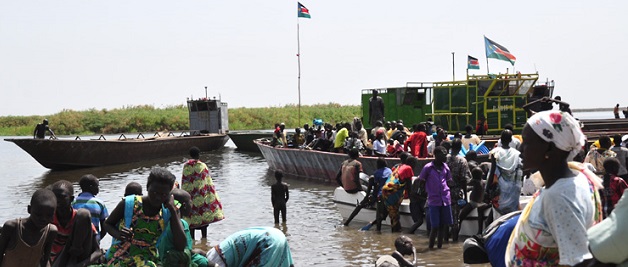South Sudan: Humanitarian Situation Critical

As the rainy season approaches in South Sudan and fighting continues unabated in different parts of the country, humanitarian needs are ever-increasing.
It has been four months since the beginning of the conflict and hundreds of thousands of people remain displaced. Tens of thousands are in need of medical care.
The ICRC delegation in South Sudan reports that food production has been affected in many places by violence or displacement, leading to growing food insecurity. The longer the conflict persists and security is lacking, the more difficult it will be for people to obtain food and meet their other basic needs. The approaching rainy season will compound the desperate situation for much of the affected population. It will restrict the work of humanitarian agencies there to assist. Roads will become impassable and aircraft will not be able to use landing strips that have turned to mud.
At present the security situation in the country is tense and unpredictable. The violence which began last December has left thousands wounded. Many of them risk death as the unstable situation stops them getting medical treatment. Since the beginning of the crisis the ICRC has performed nearly 1,200 operations. However some have been unable to obtain medical care quickly enough because they are afraid of being attacked and killed. Many die of wounds that they could have survived, simply because they are unable to obtain treatment in time.
There have also been reports of attacks on patients in several places and the destruction of health facilities. Such damage is a clear violation of international humanitarian law and we continue to remind the parties to the conflict of their obligation to ensure that the injured have access to health facilities and that medical personnel and humanitarian workers can carry out their duties.
ICRC in close cooperation with the South Sudan Red Cross and have been working around the clock, saving lives in hospitals, remote health facilities and a camp for displaced persons, often working in extreme conditions. To treat the increasing numbers of people injured by the conflict we have deployed four mobile surgical teams – more than in any other country.
ICRC teams are currently responding to needs in all 10 states of South Sudan, including remote areas in regions affected by the worst violence. South Sudan is the site of one of the ICRC’s largest operations in the world in terms of resources committed. ICRC’s annual budget for this country is more than $77 million with 600 staff on the ground.
Leonard Blazeby is Australia Head of Mission of the International Committee of the Red Cross.


